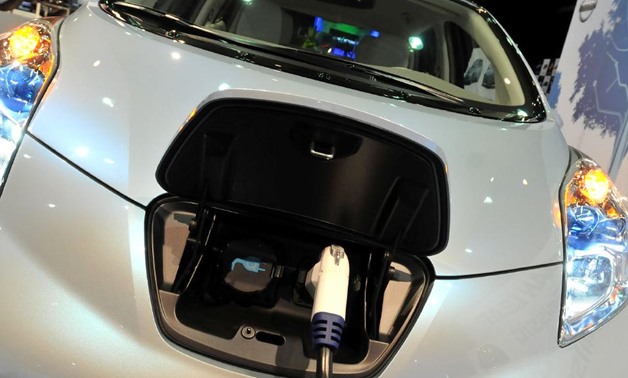
Not so fast ... electric car sales in Australia have stalled, as the rest of the world talks them up. Picture: Bryan Mitchell/Getty Images/AFP
22 November 2017: A driverless, electric car is only a swipe away in the cities of the future, where pollution clampdowns and rapid advances in technology will transform the way we travel, despite lagging infrastructure.
As more and more countries announce a phasing-out of pure petrol and diesel cars, early versions of tomorrow's models are already on the streets: hybrid cars, fully electric motors and vehicles that can partially drive themselves.
Attitudes to vehicle ownership in cities are changing as smartphone apps make a ride available in minutes.
'Driving everywhere by themselves'
Driverless technology also looks set to revolutionise urban road travel, according to industry figures.
Graeme Smith, chief executive of Oxbotica, a British company developing autonomous vehicle software, said new cities being planned in China envision all vehicles being electric, autonomous and publicly-owned. "In those cities, your life would be fundamentally different," he told AFP.
"50 years into the future, maybe these things will be driving everywhere by themselves – but there's a progression to go through."
Driverless technology faces the challenge, over time, of bringing down the cost of sensors while improving their performance – and there is currently no standard operating methodology.
Some cars with levels two and three autonomy are already on the roads.
Britain's Transport Secretary Chris Grayling said he expected the first level four self-driving cars to reach the UK market by 2021, bringing the world closer to level five, or total autonomy.
Fully driverless cars could help ease gridlock by driving closer together in convoy and avoid traffic by exchanging real-time information.
'The final destination'
The switch to electric vehicles (EVs), meanwhile, is already well under way.
Volvo will no longer sell solely diesel or petrol cars from 2019, while Volkswagen's Audi brand is gearing up to offer an electric version of every one of its models.
"We think it is really the final destination for the auto industry," said Eric Feunteun, Renault's electric vehicle programme director, told journalists in Utrecht in the Netherlands earlier this month at an event where the French car maker unveiled partnerships with renewable energy companies.
Britain and France intend to ban the sale of fully petrol or diesel cars from 2040, while smog-plagued India wants to sell only electric cars by 2030.


Comments
Leave a Comment